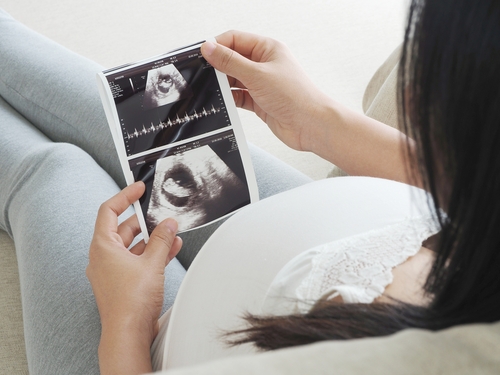Pregnancy is High-Risk Mortality Factor Among PAH Women, ROPAC Study Reveals
Written by |

Pregnancy among women with heart diseases is generally safe, with just a few deaths being reported in the ROPAC registry during a 10-year period. However, pregnancy was found to be linked to an increased mortality risk among women with pulmonary arterial hypertension (PAH).
The most recent results of this worldwide, long-term study were reported at European Society of Cardiology (ESC) Congress 2018, in a presentation titled “ROPAC – Pregnancy in women with cardiovascular disease: trends in outcome from 10 years ESC Registry of Pregnancy and Cardiac Disease.”
ROPAC stands for Registry Of Pregnancy And Cardiac disease, and is a project focused on determining maternal and fetal mortality and morbidity among women with cardiac disease in different countries.
Data from the ROPAC registry shows that approximately one in every 10 women with PAH died during pregnancy or shortly after giving birth.
“Pregnancy is safe for most women with heart disease but for some it is too risky. Our study shows that fewer women with heart disease die or have heart failure during pregnancy than ten years ago. However, nearly one in ten women with pulmonary arterial hypertension died during pregnancy or early post-partum,” Jolien Roos-Hesselink, MD, one of the principal investigators of ROPAC, said in a press release. Roos-Hesselink also is a professor at Erasmus Medical Centre in the Netherlands.
Still, ROPAC researchers believe that with proper follow-up and counseling, safe pregnancies and better outcomes can be achieved among these patients.
“Pre-pregnancy counseling is crucial to identify women who should be advised against pregnancy, initiate timely treatment – for instance in those with severe valvular heart disease, and to discuss the risks and options,” Roos-Hesselink said.
During pregnancy, a woman’s heart is forced to increase its rate by 10-20%, and to pump up to 50% more blood, in order to fully respond to the demands of the developing fetus. While the heart is optimized to handle this extra work and effort, pregnancy can be a risky situation for women with heart diseases.
In fact, heart disease is seen as the top reason women die during pregnancy in developed countries, and estimates indicate that the burden of maternal heart disease is rising.
The ROPAC registry study aimed to explore the risks for both mother and child among women with cardiac diseases.
The latest data covered a total of 5,739 pregnancies of women with heart disease, who were recruited in 138 sites across 53 countries, from 2007 to 2018.
The most common heart condition, affecting 57% of the women, was congenital heart disease (born with a heart malformation) that was surgically corrected in the majority of the cases at a young age. Other diagnoses were valvular heart disease (29%), cardiomyopathy (8%), aortic disease (4%), ischemic heart disease (2%), and PAH (1%).
Pregnancy records revealed that the frequency of cases considered high risk of mortality by the World Health Organization (WHO classification IV) increased from about 1% in 2007 to slightly more than 10% in 2018.
“This suggests that more women with very high risk heart diseases are becoming pregnant than in the past,” Roos-Hesselink said. “This is probably because corrective surgery has improved survival and more women reach reproductive age, and perhaps doctors are becoming more selective in who they advise to avoid pregnancy.”
The researchers found that only 0.6% of women with cardiac diseases died during pregnancy or the early post-partum period. Although this is a very low frequency, it is still 100 times higher than that reported in the general population, which is of 0.007%.
Death rates increased particularly in women with PAH (9%), and they also were the patients who showed the highest rate of heart failure events.
“After an initial increase in maternal mortality and new diagnoses of heart failure during pregnancy between 2007 and 2010, these rates have been declining. This occurred despite the presence of more very high risk women with heart disease being included in our registry as time went by,” Roos-Hesselink said.
Roos-Hesselink believes this could in part be due to greater awareness of the specific problems and better management of pregnant women with heart disease.
In general, women are more likely to have complications during pregnancy if they have had heart failure, diminished exercise capacity, decreased pump function of the heart, or use of anticoagulant medications before becoming pregnant.
In August 2018, the ESC released the second edition guidelines for the management of cardiovascular diseases during pregnancy in a study published at the European Heart Journal. The study, “2018 ESC Guidelines for the management of cardiovascular diseases during pregnancy,” provides an update overview on diagnostic techniques, risk assessment measures, and cardiovascular medicines available for this at-risk population.



